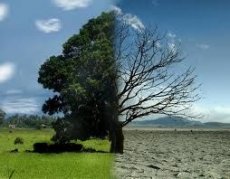New publications
Due to global warming, epidemics of parasitic and infectious diseases may break out in northern regions
Last reviewed: 02.07.2025

All iLive content is medically reviewed or fact checked to ensure as much factual accuracy as possible.
We have strict sourcing guidelines and only link to reputable media sites, academic research institutions and, whenever possible, medically peer reviewed studies. Note that the numbers in parentheses ([1], [2], etc.) are clickable links to these studies.
If you feel that any of our content is inaccurate, out-of-date, or otherwise questionable, please select it and press Ctrl + Enter.

Global warming threatens humanity with the spread of infectious and parasitic diseases, especially in the northern territories of the globe. International experts came to such conclusions at a conference held in Yakutsk.
The conference was attended by more than sixty scientists from different countries (Russia, Japan, Switzerland, the Netherlands, China).
The main theme was the study of biological diversity, migration, transformation and preservation of substances in permafrost ecological systems, which occur in connection with climate change on the planet.
Conference participants presented data on the impact of climate on ecological systems, as well as on the response of the plant-animal-soil-permafrost system.
The scientific conference in Yakutia was organized by the Institute of Bioproblems of the Cryolithozone, the North-Eastern Institute named after M.K. Ammosov, the University of Permafrost, as well as a number of scientific international projects adopted in Japan and the European Union.
During the conference, which lasted three days, experts discussed environmental issues.
Senior researcher of the Institute of Bioproblems of the Cryolithozone Alexander Kononov noted that any climate change leads, in any case, to negative environmental consequences. Climate change directly affects the condition of plants, animals, and their habitats. In addition, climate change directly affects human life.
According to Alexander Kononov, there are all the prerequisites for an increase in air temperature in the northern part of the globe, which will affect the climate of regions all over the planet.
The conference participants' attention was also drawn to the fact that in cold regions of the earth, due to global warming, the level of methane emissions increases, and the level of glaciers in the oceans decreases. All this leads to an increase in the riverbed and the release of water into the ocean.
The expert also noted that the general increase in temperature does not have a strong impact on permafrost soils located at great depths; warming affects only the upper layers of permafrost in the northern regions of the earth.
However, due to global warming, permafrost ecosystems are being destroyed, which is directly related to climate change in the Pacific region.
Experts are seriously concerned about this fact, since the melting of glaciers and rising temperatures in the North can provoke the proliferation of various viruses and parasites in this region that are not typical for this region, which in turn can lead to an epidemic among the population.
The topic of melting ice in the Arctic basin, the decline of glaciers in the Arctic Ocean, methane emissions in the East Arctic shelf, and rising water levels in permafrost areas were discussed with particular attention.
Following the conference, experts came to the conclusion that global warming could cause an increase in illnesses among residents of the North.
After the conference, a round table was held dedicated to future research and ways to solve the problems of climate change on the planet, in particular in the cryolithozone.

 [
[